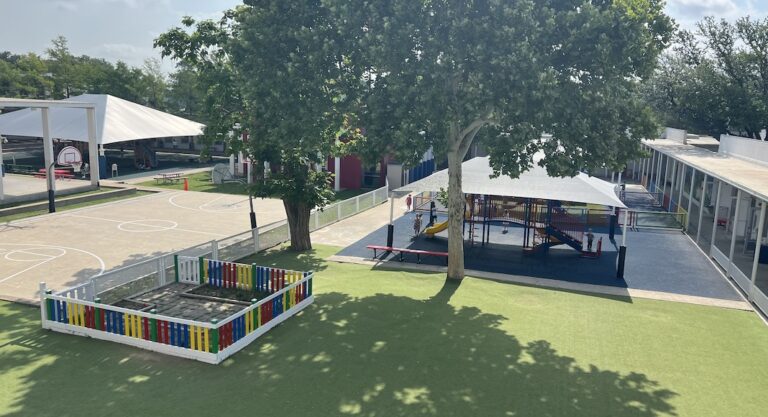When trying to apply to French or Canadian universities, hunt for a job in France, or submit a citizenship application in a French speaking country, you will almost certainly have to take a French language proficiency test to assess your French skills according to the Common European Framework of Reference for Languages (CEFR). It’s not enough to speak French; whether you’re looking to prove your French language skills for professional or personal reasons, you need to show that your French grammar, vocabulary, and communication skills are good enough to survive abroad. There are a few French exams that will test your French level, and give formal documentation of your French proficiency, but it can be complicated to understand the differences between TEF and TCF foreign language tests, or decide between a DELF vs DALF diploma.
So which French exam should you take?
What level do I need?
French language tests are scored according to six levels within the Common European Framework: A1, A2, B1, B2, C1, and C2, with A1 being a beginner, and C2 being fluent. If you want to study at a French university and have not taken and passed the baccalauréat, you will need to test at least at a B2 level. Yes, even if you are a French citizen, if you don’t “have le bac,” you’ll need to prove your written and speaking skills in the French language. If applying for French citizenship, you will need a B1 French proficiency certification. A B1 is also required to live or work in Canada (unless you are American, because of the special immigration relationship between the US and Canada). But those trying to move to Quebec will require a much higher level of proficiency, a C1 minimum. When applying for jobs in France, level requirements may vary, but plan on aiming for a B2 or higher. (If you’re not sure of your level, this free online test might help you out.)
DELF vs DALF
The DELF (Diplôme d’études en langue française) and DALF (Diplôme approfondi de langue française) are French language exams organized by France Education International, part of the French Ministry of Education, which is in charge of helping people move to France for work, education, etc. These two tests differ in the language levels they test for, and are organized by level. So if you are taking the DELF, you will be taking a test specifically for level A1, A2, B1, or B2. DALF, which is for more advanced French speakers, tests for C1 or C2 proficiency. These are good tests to take if you know your level and want to verify your French proficiency.
The DELF and DALF test 4 categories: Listening, Reading, Writing, and Speaking. The tests get longer the more advanced you are, with an A1 written exam taking an hour and 20 minutes, and a B2 taking two and a half hours. The DALF has a duration of 3.5-4 hours.
Test dates are chosen by the French government, and primarily available in June and December, and sometimes March. You will have to check with your local testing center to see when exams are available. Exam costs are set by the French government as well, and currently range from $120 (for A1) to $220 (for C2). Both exams are valid for life. Check for local test centers here.
TEF vs TCF
TCF exams (Test de connaissance du français) and TEF exams (Test d’Evaluation de Français) are not broken up by level, but instead designed to assess your French language skills on a sliding scale, with the test questions increasing in difficulty as the exam goes on. The TEF and TCF are extremely similar, and there are no major differences between the two. Both TEF and TCF exam results are valid for applying for permanent residency or citizenship in France and Canada.
The TEF Canada and TCF Canada are separate exams specifically designed for emigrating to Canada or applying for Canadian citizenship. The TEF Canada involves an additional oral exam that tests for listening comprehension and spoken French language skills.
The TEF and TCF exams tend to be more expensive than the DELF and DALF. They are also only valid for 2 years. Unlike DELF and DALF, which are written exams, TCF exams and TEF exams are taken on a computer at accredited test centers.
The TCF exam has 3 mandatory tests: Listening Comprehension, Command of lexical and grammatical structures, and Reading Comprehension, which together clock in at an hour and 25 minutes. There are two additional tests you can opt for, Written Expression (1 hour) and Oral Expression (12 min). FIAF NY currently offers the compulsory tests for $215, additional exams for $115 each, or all five exams for $385.
The TEF exam has 5 components: Oral comprehension, Written comprehension, Oral Expression, Written Expression, and Vocabulary and syntax. You will have a different exam format depending on the test you opt for. The test length for the complete exam is just under 3.5 hours. Exam prices vary by center; for example, to take the French language test at FIAF in New York in 2021, it would cost $115 per section, or $485 for all five. You can search for test centers here.
Diplomas in French for Professions
If you’re looking to get very specific, there are also special tests designed for industries like Business, International Relations, and Tourism/Hospitality. You can find more information here.
So which test should I take?
All in all, the DELF is shorter and more affordable than other tests, and never expires. Just make sure that, as limited test periods are offered, you are able to sign up for your local testing center a decent amount of time in advance.
Frequently Asked Questions – DELF/DALF exams, TCF/TEF exams
What DELF level is considered fluent?
The DELF exam is an official language proficiency test that tests beginner and intermediate French skills. DALF examinations are the next level up, and tests for fluency (C1 or C2).
Is the DALF exam hard?
The DALF exam (Diplôme approfondi de langue française) tests for C1 and C2 French levels, making it a rigorous and difficult exam run through the French Ministry of Education.
Is DELF worth it?
A DELF certificate can be extremely valuable when applying for a French university or permanent residency.
What is the hardest DELF exam?
The most advanced DELF exam is the B2 level.
Which is easier TEF or TCF?
TCF and TEF exams are widely considered to be of an equal level of difficulty.
Also Read:






